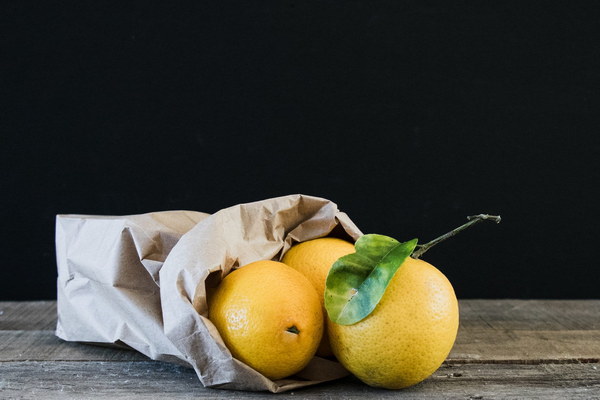Revitalize Your Lungs with Our Comprehensive Herbal Tea Recipe Guide for Lung Health
In today's fast-paced world, taking care of our lungs is more important than ever. Pollution, stress, and poor lifestyle choices can all take a toll on our respiratory health. That's where herbal teas come in. These natural remedies not only taste delightful but also offer a host of health benefits, particularly for lung care. Here's a comprehensive guide to a variety of herbal teas that can help clear and revitalize your lungs.
1. Peppermint Tea
Peppermint tea is a classic and effective remedy for respiratory issues. The menthol in peppermint helps to soothe the throat, reduce inflammation, and clear congestion. To make peppermint tea, simply steep fresh or dried peppermint leaves in hot water for about 5 minutes.
2. Eucalyptus Tea
Eucalyptus is renowned for its ability to clear respiratory passages. It contains compounds that are antiviral, antibacterial, and anti-inflammatory. Prepare eucalyptus tea by steeping fresh or dried leaves in hot water for about 10 minutes.

3. Thyme Tea
Thyme is an aromatic herb that has been used for centuries to treat respiratory problems. It's rich in antioxidants and has expectorant properties that help to expel mucus from the lungs. Boil fresh or dried thyme in water for 10-15 minutes to make a soothing thyme tea.
4. Ginger Tea
Ginger has natural anti-inflammatory and expectorant properties that can help to clear mucus and reduce inflammation in the lungs. Simply grate some fresh ginger and steep it in hot water for 5-10 minutes. Adding honey can enhance the flavor and soothing effect.
5. Honey and Lemon Tea
This simple yet powerful combination can be a great natural cough syrup. The vitamin C in lemon helps to boost the immune system, while honey has antibacterial properties and coats the throat to reduce irritation. Simply squeeze lemon juice into hot water and stir in honey to taste.
6. Licorice Root Tea
Licorice root is known for its ability to soothe the respiratory tract and reduce inflammation. It can be particularly helpful for those with conditions like bronchitis or asthma. To make licorice root tea, steep the root in hot water for 15-20 minutes.
7. Elderberry Tea
Elderberry tea has been used traditionally to support respiratory health. It's believed to boost the immune system and reduce inflammation. To make elderberry tea, steep dried elderberries in hot water for about 10 minutes.
8. Green Tea
Green tea is not only a great way to start your day but also has lung-boosting properties. It contains antioxidants that help to protect against oxidative stress and inflammation. Enjoy a cup of green tea hot or iced throughout the day.
9. Turmeric Tea
Turmeric is a powerful anti-inflammatory spice that can be made into a tea. Boil water and add a teaspoon of ground turmeric, allowing it to steep for 5-10 minutes. Adding black pepper can enhance the absorption of curcumin, the active compound in turmeric.
10. Hawthorn Berry Tea
Hawthorn berries are known for their heart-healthy benefits, but they also support lung function. The berries contain antioxidants and flavonoids that can help improve circulation and respiratory function. Brew hawthorn berry tea by steeping the berries in hot water for 10-15 minutes.
Incorporating these herbal teas into your daily routine can provide a natural way to support lung health. However, it's important to remember that while herbal teas can complement conventional medical treatments, they should not replace them. If you have a chronic respiratory condition or are pregnant, it's best to consult with a healthcare provider before starting any new herbal regimen.
Remember, the road to lung health is a journey, and these teas can be a delicious part of that path. Enjoy your cup of lung-boosting herbal tea and take a moment to breathe deeply and appreciate the natural world around you.









